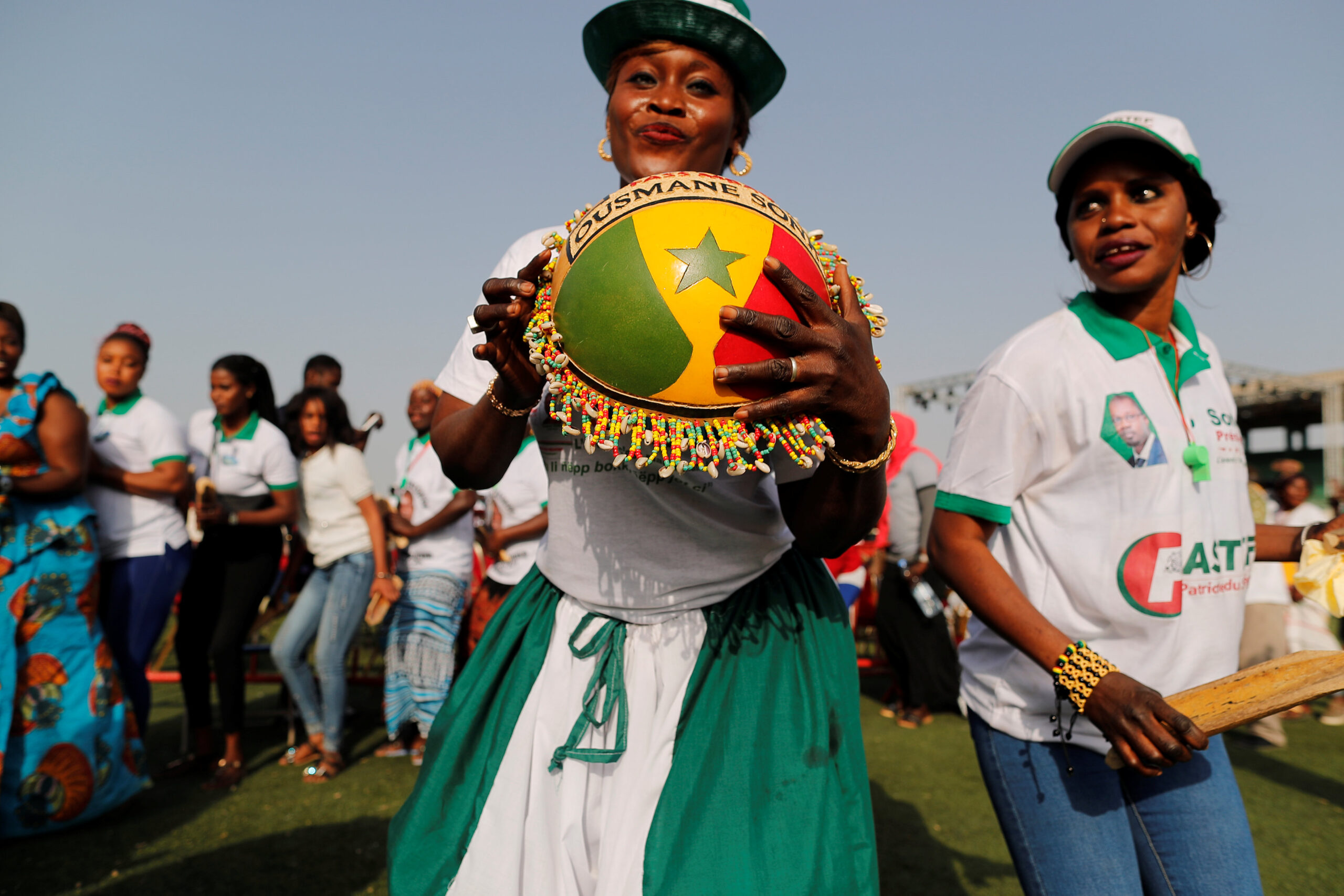
SENEGAL DECIDES: Senegal braces for crucial presidential elections

Senegal is widely described as one of the most stable democracies in West Africa. It is a reputation that seems warranted as you walk through the streets of Dakar, where political expression is abundant and complacency uncommon.
This is particularly noticeable in the run-up to the presidential elections this February 24th, with strong and varied opinions surrounding the five men competing for Senegal’s presidency. As incumbent President Macky Sall runs for a second term, up against four other candidates, political discourse is high. The faces of the presidential hopefuls line every lamppost and political rallies pop up on street corners as bus-loads of men and women waving flags and donning placards pour into the capital.
“Senegalese people have a long tradition of political engagement, historically the Senegalese have been voting for more than 200 years in this country. And since 1974, we have been organising elections,” notes Siedy Gassama, a local political commentator and executive director of Amnesty International Senegal.
However, this stable reputation does not mean the elections have been without controversy. Earlier this month, February 11th, two people were killed during campaign rallies in the south-eastern town of Tambacounda. Many others were reportedly injured following violent clashes between supporters of President Macky Sall and supporters of one of his opponents, El hadj Issa Sall.
Tensions rose after Khalifa Sall and Karim Wade – two of the most popular opposition leaders – were disqualified after being convicted of corruption, in trials that have been questioned by rights groups. Both Sall and Wade claimed their criminal convictions were orchestrated to rule them out of the Presidential race.
“Khalifa Sall was a promising political figure in this country,” Gassama notes. “Many people know him in this country. He has connections and a network. So there was a lot of disappointment.”
Karim Wade’s father, the former President Abdoulaye Wade, responded by calling on voters to boycott the vote, alleging it had been fixed in favour of Macky Sall.
These controversies have dogged the 57-year-old incumbent throughout the campaign. While Sall, who has been in office since 2012, receives frequent praise for his ambitious industrial schemes and economic growth, critics question his impact on political freedoms in Senegal.
“During the seven years, he did a lot in terms of the development of the country, much infrastructure, roads, bridges. He did a lot in terms of improving the living conditions for people in this country,” explains Gassama.
“But at the same time, there have been a lot of abuses in terms of civil liberties. These judicial issues have undermined his good record in terms of economic investment for the country.”

Nonetheless, Sall and many observers remain confident that he will hold on to the presidency after this month’s elections. “Victory in the first round is indisputable,” Sall told a recent Dakar campaign rally.
While opinion polls are banned prior to elections, a widely cited survey conducted by a Senegalese data company in November gave Sall 45% support.
That’s not to say other candidates are not garnering attention. In particular, newcomer Ousman Sonko – the youngest of the five men – has harnessed the power of social media to run an effective campaign, gathering noticeable support among Senegal’s youth and the diaspora.
“If I am the candidate of youth, I will be elected President of the Republic of Senegal,” Sonko reportedly said at a rally earlier this week.
Another of Sall’s main challengers is former prime minister Idrissa Seck of the Rewmi Party, who has previously run twice for the presidency.
The other two candidates are inspector-turned MP Ousman Sonko, Issa Sall of the Unity and Assembly Party (PUR), and former justice and foreign minister Madicke Niang.
As election day closes in, candidates are canvassing the country in a last-minute attempt to woo supporters, with 6.2 million Senegalese registered to vote. Despite previous unrest, the country appears stable and Gassama expresses hope that Senegal is ready to take to the polls.
“I think we are ready for elections,” he says.
“Civil society has a lot of experience in monitoring elections, in monitoring civil liberties and freedoms for the elections. The media also plays a very crucial role, so that has helped Senegal to have credible elections.”
#Senegal is one of West Africa’s most stable countries, given the peaceful transfers of power there since 1960. Incumbent leader @Macky_Sall who faces four opponents in the 24 Feb #SenegalVote, is praised for growing the economy by over 6%, but is that enough to keep him there? pic.twitter.com/rNbXHhHF3k
— CGTN Africa (@cgtnafrica) February 20, 2019






